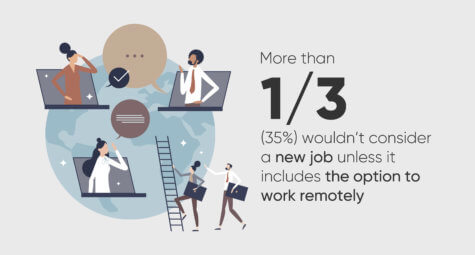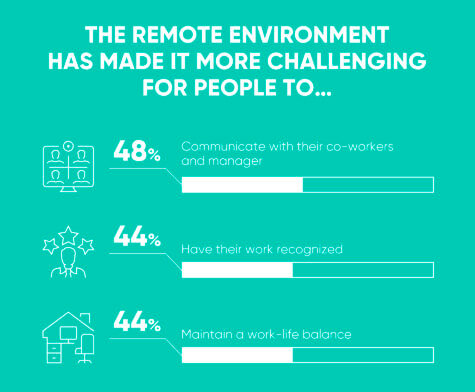NEW YORK — The pandemic has fundamentally changed the American workweek, a new study reveals. In fact, only one in 15 remote workers expects to be back in an office for five days a week.
In a recent survey of 2,000 fully remote or hybrid-remote employees, more than a third (35%) say they wouldn’t even consider a new job unless it includes the option to work remotely.
Don’t fix what’s not broken
More than three-quarters have found simple pleasures in working from the comfort of their home. That includes more frequent coffee or snack breaks (54%), extra time with family (51%), the casual dress code (50%), and more comfortable seating (50%).
Conducted by OnePoll on behalf of Rippling, the survey also finds that more workers still prefer some time in an office. In all, 39 percent preferring a hybrid work environment, compared to 24 percent who prefer working completely remote.
While employees in tech or computer science are the most excited for a hybrid role (50%) however, arts and entertainment employees would rather be completely in-office (54%).

Remote work isn’t always rosy
Despite the benefits and comforts of remote work that many respondents cited, it does come with challenges. The remote environment has made it more challenging for people to communicate with their co-workers and manager (48%), have their work recognized by their peers (44%), and maintain a work-life balance (44%).
These challenges can be particularly apparent when workers leave or start new roles remotely. This is important for employers in a tight market to consider, because eight in 10 remote workers believe they can predict whether they’ll like a new job based on the onboarding process.
Respondents identified some problems they’ve faced while starting and onboarding with a new job from afar. Seven in 10 find it a hassle to obtain the necessary software and office equipment, and the same amount say getting to know their co-workers and manager is now more difficult.
Employees who’ve transitioned to a new team within the same company have also faced difficulties, including staying in touch with their former colleagues and manager (70%).
“For the foreseeable future, companies will need to find ways to support a distributed workforce, but it’s still a heavy lift for many organizations. For example, oftentimes companies struggle to onboard a remote employee, whether it’s sending them a computer or enrolling them in the proper benefits,” says Rippling’s VP of Human Resources Christine Maxwell in a statement. “This survey makes clear that companies need to adapt and find modern solutions to support their workforce.”

What do employees want?
The Great Resignation has brought on great expectations for people in the workforce, with seven in 10 employees revealing they expect reimbursement for certain expenses. More than a third expect to be reimbursed for office furniture, and half would expect the company to pay for additional software that facilitates remote working.
“Companies must continue to adjust to this new normal and catch up to the new needs within a business. It’s a struggle for companies to simply collect a laptop when a remote employee departs the company. That didn’t exist when everyone was in the office five days a week,” adds Maxwell.
“Today businesses can automatically store, ship and retrieve employee computers with a click of a button. There are dozens of different problems that you can easily automate, and taken together, improve the experience for your employees and make a significant impact on the business.”
